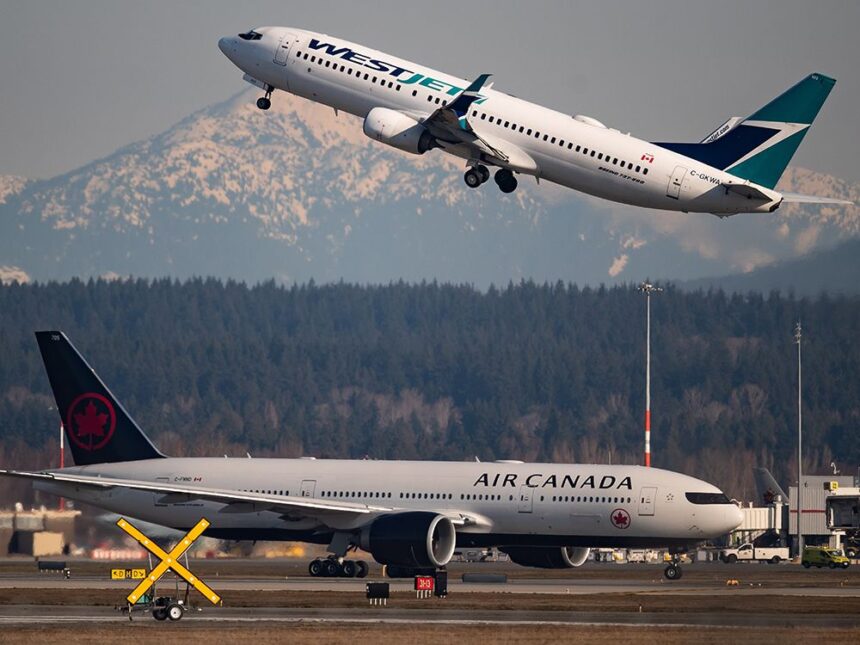In a bold proposal that could fundamentally reshape Canada’s aviation landscape, the Competition Bureau has recommended allowing complete foreign ownership of domestic-only Canadian airlines. This surprising recommendation comes amid growing concerns about limited competition and high airfares that have long frustrated Canadian travelers across the country.
The Bureau’s landmark report, released yesterday, identifies our country’s restrictive foreign ownership rules as a significant barrier to meaningful competition in the domestic air travel market. Currently, foreign investment in Canadian airlines is capped at 49 percent, with an additional restriction limiting voting interests to just 25 percent—regulations the Bureau now suggests are hampering the development of a truly competitive marketplace.
“The existing regulatory framework has created an environment where Canadians consistently pay more for air travel than our international counterparts,” said Matthew Boswell, Commissioner of Competition, in a statement accompanying the report. “Allowing full foreign ownership of airlines operating exclusively on domestic routes could bring the investment and competition our market desperately needs.”
The report comes at a critical juncture for Canada’s aviation sector, which has faced intense scrutiny following the collapse of several low-cost carriers and persistent complaints about service quality and pricing. Industry analysis indicates Canadian passengers pay approximately 30% more than American travelers for comparable flights, a disparity the Bureau attributes partly to insufficient competitive pressure.
Air Canada and WestJet, which together control over 80% of domestic capacity, have predictably expressed concerns about the proposal. In a statement, Air Canada called the recommendation “shortsighted,” arguing that it “fails to acknowledge the strategic importance of maintaining Canadian control over critical transportation infrastructure.”
Transport Minister Pablo Rodriguez has acknowledged receipt of the report but remained non-committal, stating his department would “carefully review the recommendations while balancing competitive considerations against national security and transportation policy objectives.”
The proposal has garnered support from consumer advocacy groups and business analysts who see it as a necessary step toward addressing Canada’s notoriously high airfares. The National Airlines Council of Canada, however, countered that foreign ownership rules aren’t the primary obstacle to competition, pointing instead to high airport fees, security charges, and fuel taxes that make Canadian aviation costs among the highest globally.
“While opening ownership restrictions might attract new entrants, we need to address the fundamental cost structure problems that make Canada an expensive place to operate an airline,” said Jeff Morrison, the Council’s president.
International precedents for such liberalization exist. Australia and New Zealand have permitted 100% foreign ownership of domestic airlines for years, resulting in increased competition and generally lower fares. The European Union similarly allows any EU-based carrier to operate throughout the bloc, creating a more integrated and competitive market.
“The evidence from other jurisdictions suggests that relaxing ownership restrictions, when done thoughtfully, can significantly benefit consumers through increased competition, more routes, and lower prices,” noted transportation economist Dr. Anming Zhang from the University of British Columbia.
The Bureau’s recommendation now enters a period of public consultation, with the federal government expected to respond formally by early next year. If implemented, it would represent the most significant change to Canada’s aviation policy in decades and potentially open the door to major international airlines establishing Canadian subsidiaries focused exclusively on domestic routes.
As this political debate unfolds, the central question remains: will Canada prioritize protecting its established carriers or embrace a more open market that might finally deliver the competitive air travel environment Canadians have long been promised? In a country defined by vast distances, where air travel is often essential rather than optional, the stakes could not be higher.










